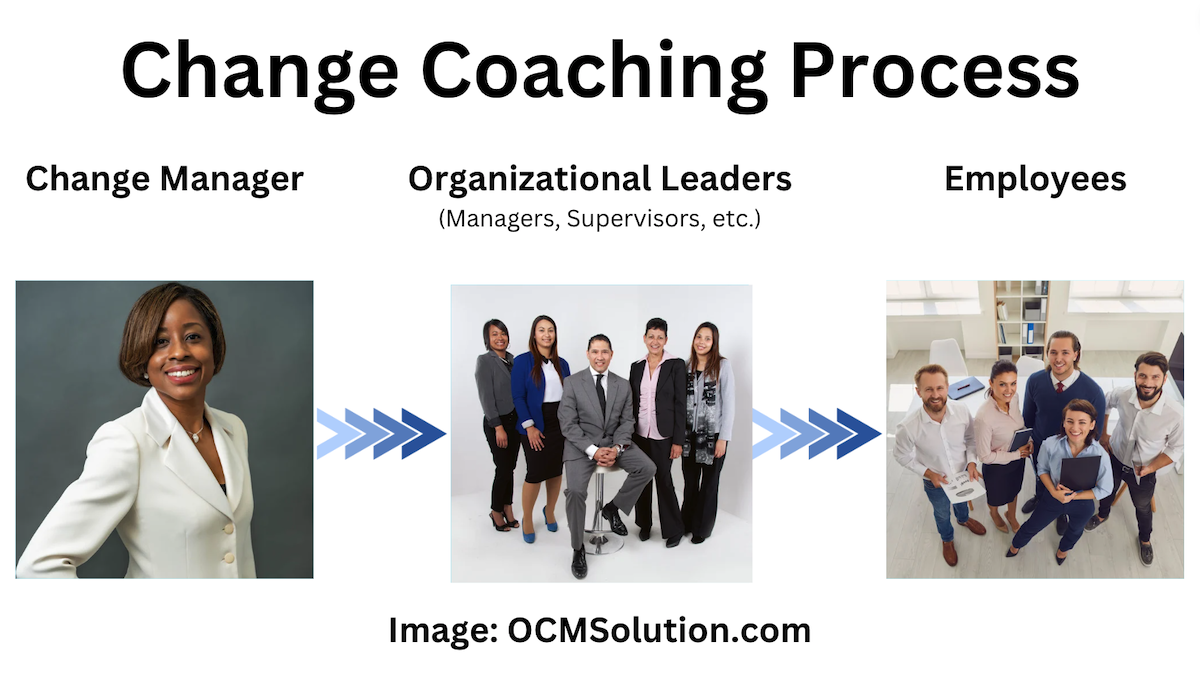From Paperwork to Progress – How HR Became the Key to Unlocking Successful Transformation
Change. It’s a word that can send shivers down even the most adaptable employee’s spine. New software, restructuring, shifting priorities – these upheavals can disrupt workflows, erode morale, and leave your organization floundering. But what if there was a secret weapon hiding within your company, ready to turn change from foe to friend? Enter the often-underestimated hero: Human Resources.
In this article, we’ll unveil the critical role of HRM in change management in navigating change successfully, ensuring a smooth transition that unlocks the true potential of your organization and its people, and answer important questions like, how correct is it to expect HR to lead rather than facilitate change?

Story Highlights
|
Don’t Just Change the System, Change the People: Why HR Leads the Way
The integration of HR into change management processes is fundamental for the success of organizational transitions. Change management revolves around facilitating people through transformative projects, emphasizing that organizational change is driven by individuals. Therefore, the HR department’s role becomes pivotal due to its expertise in working with people.
From Supporting Players to Stars: Why HR is Redefining Change Management
HR’s involvement in change management is crucial at both strategic and operational levels. Some organizations appoint HR as the primary driver of change, while others embed HR personnel within change management teams. Regardless of the approach, HR’s goal remains aligned with change management: ensuring employees are supported and capable of embracing new behaviors required for successful change.
Change Management: Navigating the Human Side of Transformation
Change management entails guiding organizations through transitions, which can stem from various factors such as technological advancements or structural adjustments. Unlike project management, which focuses on logistics, change management prioritizes the human element, aiming to navigate individuals through shifts in processes or structures.
From Training to Teamwork, HR’s Got You Covered
Within change management, HR undertakes diverse responsibilities. These include developing training plans tailored to employees’ needs, serving as a primary communicator regarding change details, anticipating and mitigating resistance, and facilitating engagement initiatives to promote acceptance.
In achieving organizational change objectives, HR’s active engagement throughout the change management process is imperative. By understanding its role, collaborating with change management teams, and prioritizing employee well-being, HR contributes significantly to successful change initiatives.
Do you have any questions or feedback about HR as a change agent or change management for HR? We’d love to hear from you. Reach out here.
Understanding the Connection of HR Change Management & Successful Change
You’ll often hear HR being mentioned when there is a change management project. The role of HR in managing change is one of the most important departments because human resources is all about working with people.
The main goal of change management is successfully guiding people in the organization through a transitional change project. It’s well understood that it’s not organizations that change; it’s the people in them that drive the change.
So, unless people are successfully guided through the change and adopt the new behaviors and habits necessary, the change isn’t going to happen successfully.
Who is all about guiding people, understanding their concerns, and addressing their needs? The HR department.

HR Change Management Role
That’s why it’s vital for any change management team to have HR as a change agent to help in driving the change at the ground level.
In fact, the HR role in change management is so crucial that some organizations will have an HR change manager and lead the change from the HR department.
Others will include HR change management examples on the team in the form of change management team members that are responsible for the employee side of the change project.
HR and change management have the same goal when it comes to any organizational change, which is to ensure employees are supported through the change and are able to adopt the new behaviors needed to make the change project successful.
What You’ll Learn
In this OCM Solution insight article, we’ll go through HR change management and how HR and change management connect. We’ll include:
- Details on the HR role in change management
- Why every manager has a role in helping to manage change
- Tips for an HR change management plan
- 3 ways HR can support individuals during change
- Downloadable Role of HR in Change Management PDF
- Downloadable Role of HR in Change Management PPT
See Also: Top HR Consulting Firms for Large & Small Businesses | HR Outsourcing
What is Change Management?
Before we get into the HR change manager role, we should first define change management itself.
Organizations go through change regularly for any number of reasons. A company may be putting in a new VoIP phone system to improve cloud adoption, adding a new product, or downsizing due to a merger.
Any type of activity that is going to change the way something is done and that impacts employees is facilitated by change management.
Change management uses processes, methods, and tools to plan the change project and guide employees through the change successfully. The goal is to help them adopt the new ways of doing things so the organization can, in fact, make the change.
Without people changing, the organization can’t change.
Change management and project management are sometimes confused because there can be a change component to a project and a project planning component to a change. The key thing to remember is that change management is about the “people” side of change and focuses on guiding people through that transition, whatever it may be.
Contact us if you have any questions or feedback about this guide on how can human resources play a role in managing change. Also, let us know if you have any change management HR examples that you would like listed on this page to help other change management practitioners.
What is HR Change Management?
HR and change management are two distinct areas of an organization. However, the line can be blurred if an organization doesn’t specifically have a change management team.
You’ll sometimes find job positions listed for an HR Change Manager, and it’s because some companies will create a change team inside their HR department since change management is people-oriented, just as HR is.
An HR change manager may focus exclusively on the people involved with a change rather than the project planning part of the change, which may be left up to a project management team.
Just as with any other project, change projects also need to have the planning done for things like a timeline of implementation and to put all the project assets into an organized framework.
There are three different ways the HR change management role can work:
- There is an HR change manager in the HR department responsible for driving the people part of the change project.
- There is an HR change manager included in the change management team to facilitate the people part of the change management plan.
- The HR department is asked to help with an HR change management plan that they then give to the change management team, and they continue to support the project in a similar way as the other department managers do.
Why is Managing Change an Integral Part of Every Manager’s Job?
While every manager in an organization may not be on the team driving the day-to-day of a change management project, they all play a part in ensuring that the project is successful.
Leaders are a vital part of an organization because they set the tone for corporate culture and can either encourage or discourage employees from adopting a change. Employees look to managers and supervisors for cues on what’s important in the organization, how to carry out their work, and what things to make a priority (e.g., customer service over all else).
Because of the influence that managers have on the employees in an organization, they’re vital to the change management effort. Helping employees through change is an integral part of what they do because no one else has quite the same influence they carry with those they lead.
This is why, for HR managers, sales managers, and managers in every other department, change management teams put together a leadership coaching strategy.
Leadership coaching involves teaching managers some of the change management best practices they’ll need to know to help with the change project, such as:
- How to identify employee resistance to change
- How to address and resolve resistance to change
- How to motive their team to support a change
- Ways to liaison between the change management team and their staff to support the project
- How to coach employees through the change project
Managers are integral to change management because they’re a direct line to each employee. The ideal communication path is for the change manager and change management team to provide change coaching to an organization’s leaders. Then those leaders provide change coaching and mentorship to the employees they lead.

Leadership coaching is another area where HR as a change agent can be helpful because the HR team will already know the types of skills needed to coach and mentor employees.
So, the HR role in change management can be tapped to help other managers in an organization understand tactics taken to support employees and identify any resistance they may have to change so it can be addressed.
Don’t Miss: Best Team and Tasks Management Software
What is the Role of HR in Change Management?
Whether HR change management examples include an HR change manager on the change team or in a more supportive role, human resources plays a vital part in a change project.
HR is the “people” part of an organization, and the people are the most crucial piece of successful organizational change.
According to an article in Forbes, 62% of people don’t like leaving their comfort zone. Change isn’t easy because it often means a change in behavior and habits. It forces people outside their comfort zone.
Resistance to change will typically come from an emotional place and can be very personal to someone that is being asked to change. HR as a change agent helps bridge the gap between the requirements of a change project and how that change is personally impacting employees.
One might say that managing change is in the “wheelhouse” of those in the HR department because they deal with how work is impacting employees every day. This makes the HR change management role one of the most important of any others in the organization for driving change.
HR Role in Change Management
While each organization may differ slightly in how they deploy HR change management examples in their organization, the following are typical tasks included in the role of HR and change management.
Providing an HR Change Management Plan for Training
The HR department may know better than a change project planning team the type of support and training employees will need to get through a change successfully.
For example, a change project manager may be looking just at budget and wonder if they could get away with scheduling one two-day training to teach employees a new software process.
The HR, as a change agent, may step in and explain that people are going to need more time to learn the new way of doing things, involving more than that one training session.
The ultimate goal is to ensure people are given a chance to acquire the skills needed to successfully adopt the new processes, so having an HR change management plan for training can help ensure people are given the necessary time to make that happen.
Acting as a Key Communicator About the Change
A change project will impact the way employees do things, and there may be some confusion about what’s expected during and after the change. An employee may also be fearful that if they can’t adapt, their job will be in jeopardy.
Confusion about expectations and fear of what the change means to an individual are both factors that can cause employee resistance to change.
Here, the HR role in change management can help alleviate concerns by answering questions and communicating relevant information about the change.
This can include things like:
- Sheets that explain the old vs. new process
- How a change impacts an employee’s position, pay, hours, etc.
- What happens if an employee has difficulty with the change
- If needed, disciplinary actions resulting from refusal to adopt the change
- Updates on what’s happening with the change project
- Reminders about meetings, training, and other change activities
Would you like to receive content related to the role of HRM in change management? Sign up for our monthly newsletter filled with OCM tips and knowledge.
Helping Change Team Anticipate Resistance
Proactive resistance management is an important part of a change project because if resistance can be anticipated, it can often be headed off and resolved before it becomes a problem.
Because of the HR department’s relationship with employees in an organization, they’ll often have insight into who may resist a particular change that the change management team may not have.
For example, there are specific personality types that are more apt to be resistant to change than others. According to the Resistance to Change (RTC) Scale, these are:
- Routine Seeking: Someone who craves routine and their “comfort zone.”
- Emotional Reaction: Someone that tends to get anxious or stressed when things change.
- Short-term Focus: Someone that focuses only on the “now” rather than the long-term.
- Cognitive Rigidity: Someone that is set in their ways and finds change difficult.
The HR change management expertise, when it comes to knowing each personality type in the organization, can be invaluable in identifying people that may find the change difficult and coming up with ways to mitigate that potential resistance.
Watching for Resistance
Watching for resistance to change so it can be addressed as soon as possible is vital. The #1 reason change projects get derailed and don’t achieve their desired results is due to employee resistance to the change.
If resistance isn’t identified and resolved as soon as possible, it can poison a project and cause it to fail. This means that knowing when someone is resistant is key to a change manager and HR change manager.
When employees are resistant to change, they may not feel comfortable bringing it up at meetings, but due to the relationship with HR, they may feel okay telling their HR director about their concerns.
The HR change management role, in this case, is as a watchdog for potential resistance to change. They can identify resistance in a number of ways:
- Surveying employees for their feedback on how the change is going
- Inviting employees to meet with them to voice feelings about the change
- Observing employee behavior relating to the change (are they skipping meetings? Not returning emails?)
Providing Resistance Mitigation Suggestions
Once resistance is identified, the change management team will work to resolve that resistance to get the individual or group from resisting to accepting and supporting the change.
They do this through direct intervention and tapping the leadership network to help. But they may not always know the best strategy to use with a particular employee.
This is where the relationship the HR team has with employees in an organization can prove to be invaluable.
Using HR as a change agent, in this case, would mean getting their insight based upon their relationship with an employee on the best way to resolve their concerns about the change.
Two HR change management examples of how they can help with resistance management are:
- The HR team may know that a particular person is swayed by facts/figures and not emotions, which cues the change team how to proceed.
- The HR team may have insight that an employee is going through a stressful time at home, which can inform how the change team works with that person to guide them through the change.
Suggesting Opportunities for Engagement
Engaging employees in a change process can both drive support and help mitigate resistance to change.
The HR change management role in this respect is one of connecting people to potential engagement opportunities for the change project.
For example, they may know which employees are well regarded in their respective departments and who would be perfect for the Change Champions Network.
They might also be the first to spot someone feeling left out, and suggest an engagement activity, such as helping to create motivational change graphics to be used to keep the organization energized.
Keeping the Focus on the People
It’s easy for a change management project to get caught up in the “project” part of the change – dealing with logistics of the go-live date and making sure everyone has the resources they need in their departments to make the change happen. But sometimes this can cause the project to lose focus on the “people” part of the change.

HR Role in Change Management
For example, if you spend more effort getting new software and hardware installed for the change, but less effort on training people to use those tools, the change isn’t going to go very smoothly.
Because the HR department deals with how employees are impacted by their jobs, they’re an essential catalyst to remind a change team not to lose focus on how the people in an organization are being impacted and what needs to happen to help them adopt a new process successfully.
Related: Best HR Software, Systems & Tools
How Can HR Support Employees Through a Change?
We’ve discussed the HR change management role and how beneficial it is to have HR as a change agent. Now we’ll discuss 3 ways HR can support individuals during change.
This gets more personal and involves how they can mentor and help employees during the change process so it can go as smoothly as possible.
There are many feelings that can come up before, during, and after a change project has been implemented. These include fear, anxiety, anger, confusion, excitement, and more.
The following are some ways that HR change management support can help get people through their initial emotional reactions, some of which may cause resistance to change, and help them come out on the other side feeling good about the change.
3 Ways HR Can Support Individuals During Change
- Listening & Validating: Employees can often feel they have no power when it comes to a change project, and sometimes they just want to have their feelings validated. The HR change manager can provide a sympathetic ear and validation that an employee’s opinion matters.
- Providing Answers & Reassurance: When employees are confused about what’s going on with a change project, it can often bring up feelings of fear, anxiety, and resistance. The HR role in change management can act as a place to get answers to clear up confusion and reassure a person that they’ll get the support they need for the change.
- Advocating for Employees: HR as a change agent is an important advocate for employees with the change management team. They can bring up common concerns and help to ensure employees get the training and other support required to help them transition through the change successfully.
Looking for answers to questions like: How correct is it to expect HR to lead rather than facilitate change? We answer this and more in our monthly newsletter. Don’t miss a thing, sign up for our newsletter.
How Can HR Help Achieve the Goal of Managing Change for an Organization?
Whether or not an HR change management person is on the change team or not, the HR department as a whole has a vital role to play in any change management project.
HR can help achieve the goal of managing change for an organization by being engaged in the change management process from the beginning.
It’s also important that HR understands HR’s role in change management and how they can play a part in acting as a liaison between employees and the change management team.
The key ways that the HR change management role helps with the goal of managing organizational change are:
- Support the change and be engaged in the process
- Perform the duties that are common to the HR role in change management
- Be there to support, mentor, and advocate for employees throughout the change process
- Help leaders in their role as drivers for the change and employee coaches
Popular Article: Hiring a Project Manager? Requirements & Interview Questions to Ask
Would you like to know more about OCM software solutions offered by OCMS? Looking for an overview of the OCMS Portal? Please reach out and let us know. We’re happy to help!
Downloads: Role of HR in Change Management PDF & PPT
OCM Solution has developed an easy checklist for you to use in understanding the HR role in change management. You can use this resource in two ways, as a role of HR in change management PDF or a role of HR in change management PPT.
This resource is helpful both to the HR department and to the change management team to help them understand the HR change management role.
Click the links below to download the document of your choice.

Downloads:
Role of HR in Change Management PDF
Role of HR in Change Management PPT
Conclusion: Guide to the HR Change Management Role in a Successful Change Project
HR and change management share a focus on the people in an organization. This is why the HR role in change management is important in helping a change project achieve success.
Not many in a company know the employees on a personal level as the HR department does. Their valuable insight can provide important information to the change management team when it comes to resistance mitigation, training, and more.
HR, as a change agent, plays many roles that are key to a change being completed successfully and achieving the desired outcome. This includes being an advocate for employees during change, providing vital answers to clear up confusion, and ensuring employee training is adequate to support the project goals.
Whether the HR department is leading the change project itself or is an important HR change management support system, it’s the first department that a change manager will want to have on board with the change project.
Note: Content on OCM Solution's ocmsolution.com website is protected by copyright. Should you have any questions or comments regarding this OCM Solution page, please reach out to Ogbe Airiodion (Change Management Lead) or the OCM Solutions Team today. OCM Solution was previously known as Airiodion Global Services (AGS).
Images: stock.adobe.com







